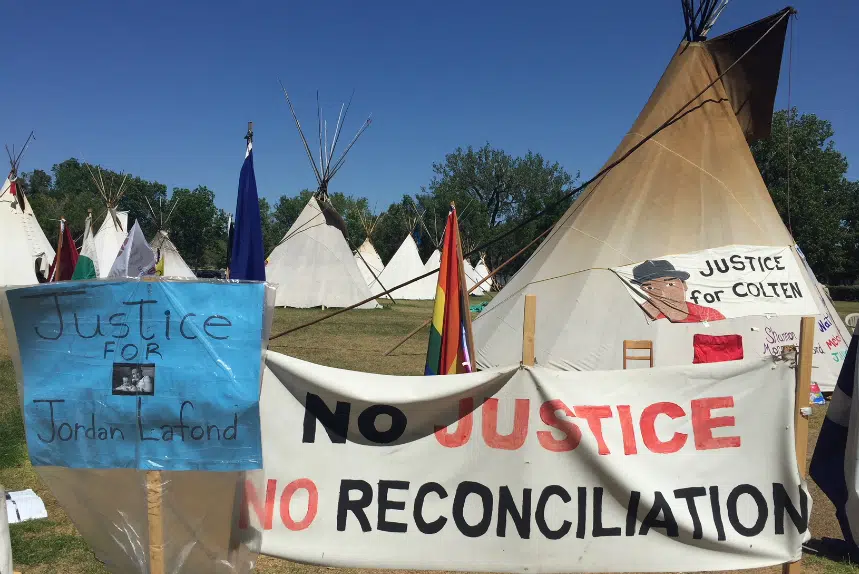It’s 140 days and counting for the Justice for our Stolen Children Camp despite receiving a document from the government about their list of requests.
The camp, set up after acquittals in the deaths of Colten Boushie and Tina Fontaine, want systematic changes to issues like foster care and inquiries into Indigenous deaths, but the government says many of their desires are already being handled.
The camp put forward the list of requests in a closed meeting on July 2 with five provincial ministers in Fort Qu’Appelle and received the government’s response Friday.
“There is a massive disconnect between what the provincial government is saying they’re doing and what we’re seeing on the ground,” said Robyn Pitawanakwat, a camp supporter.
“We’re also attending family court and speaking with lawyers, speaking with legal assistants and they are also letting us know…We want to see the evidence they claim they have that they are doing this work.”
Cheif Edmund Bellegarde with File Hills Qu’Appelle Tribal Council has been involved with the camp after it was evicted on June 18. The confrontation sparked a meeting between him and Mayor Michael Fougere two days later.
He told reporters another meeting will be taking place in the next number of days to speak on behalf of the camp.
However, Premier Scott Moe said government will not consider meeting again with protestors themselves until the camp is voluntarily taken down.
“Canada, it’s time. Saskatchewan, it’s time to have more effective public policy that includes Indigenous-led solutions,” said Bellegarde, who supports the protest.
“Public policy in the frameworks need to change,” he said, adding ever since the Indian Act, public policy is a “one-way street.”
“We look at how do you move forward? There has to be solutions coming forward; there has to be constructive mechanisms; there has to be constructive dialogue; there has to be more inclusivity,” he said.
“The concerns raised will be taken forward as we continue to work with our 17 First Nation Child and Family Service Agencies and other Indigenous leaders and partners, the federal government and other jurisdictions,” government wrote in its response.
They began with a single teepee and now have thirteen as supporters set up teepees of their own.







